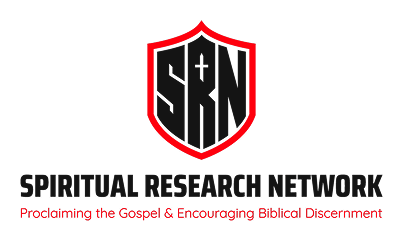In an age of conflicting teachings, emotional experiences, and widespread deception, believers often ask, "What is spiritual discernment?” The Bible clearly speaks of the need for wisdom, testing, and spiritual maturity. Discernment is not a spiritual luxury—it is a spiritual necessity.
Spiritual discernment distinguishes between truth and error, right and wrong, genuine faith and false teaching. It is not based on personal feelings or tradition. It is rooted in Scripture, led by the Holy Spirit, and sharpened through spiritual maturity. Discernment protects believers from deception and helps them stay grounded in God’s truth.
A Biblical Understanding of Spiritual Discernment
Discernment is more than good judgment. It is a gift and a discipline. Hebrews 5:14 explains that mature believers have their “senses trained to discern good and evil.” This means discernment grows with time, Scripture study, and obedience to God.
True spiritual discernment helps believers:
- Evaluate doctrine
- Recognize false prophets
- Test spiritual experiences
- Spot spiritual abuse
- Make wise decisions in complex situations
God never calls His people to blind faith. He calls them to walk in wisdom and truth.
Testing the Spirits
1 John 4:1 commands, “Do not believe every spirit, but test the spirits to see whether they are from God.” Spiritual discernment involves measuring teachings and claims against Scripture. Not every supernatural event or “Christian” message comes from the Holy Spirit. Some originate in deception.
Discernment involves asking:
- Does this teaching align with Scripture?
- Does it exalt Christ or man?
- Does it produce obedience or confusion?
Guarding Against False Teaching
False teachers don’t always look or sound dangerous. Jesus warned in Matthew 7:15, “Beware of false prophets, who come to you in sheep’s clothing.” They often use familiar language, quote Bible verses, and attract crowds.
Discernment helps you identify:
- Twisting of Scripture
- Half-truths mixed with lies
- Messages that downplay sin, repentance, or the gospel
- Teachings that elevate personal revelation above the Bible
Growing Through God’s Word
The primary tool for discernment is Scripture. Psalm 119:105 says, “Your word is a lamp to my feet and a light to my path.” The more time you spend in God’s Word, the sharper your discernment becomes. It helps you recognize counterfeits by knowing the truth.
You don’t need mystical insight. You need the Bible. Study it daily. Apply it to everything you hear and experience.
Watching for Fruit
Jesus said in Matthew 7:16, “You will recognize them by their fruits.” Discernment is not only about words—it’s about results. Does the teaching or the teacher produce godly fruit? Or does it create pride, fear, control, or confusion?
Fruit includes:
- Humility, not arrogance
- Repentance, not rebellion
- Holiness, not hype
- Truth, not manipulation
Discernment looks past style and evaluates substance.
Praying for Wisdom
James 1:5 promises, “If any of you lacks wisdom, let him ask God.” Spiritual discernment requires prayer. The Holy Spirit guides, convicts, and teaches. He opens your eyes to danger and confirms the truth.
Ask God to give you wisdom. He delights to answer.
Are You Still Wondering, “What Is Spiritual Discernment?”
Discernment is how we protect our faith, help others avoid error, and walk closely with Christ. It’s not about being suspicious. It’s about being anchored.
Discernment guards your heart, strengthens your mind, and keeps you from spiritual harm. With the rise of false teaching, spiritual abuse, and emotional manipulation, discernment is one of the most vital skills for every Christian to develop. By exercising discernment, we cultivate a deeper understanding of truth and grow in spiritual maturity.
If you need help growing in spiritual discernment or evaluating a teaching or movement, contact the Spiritual Research Network. We’re here to help you stand firm in God’s truth—wise, watchful, and spiritually equipped.


.jpg)
